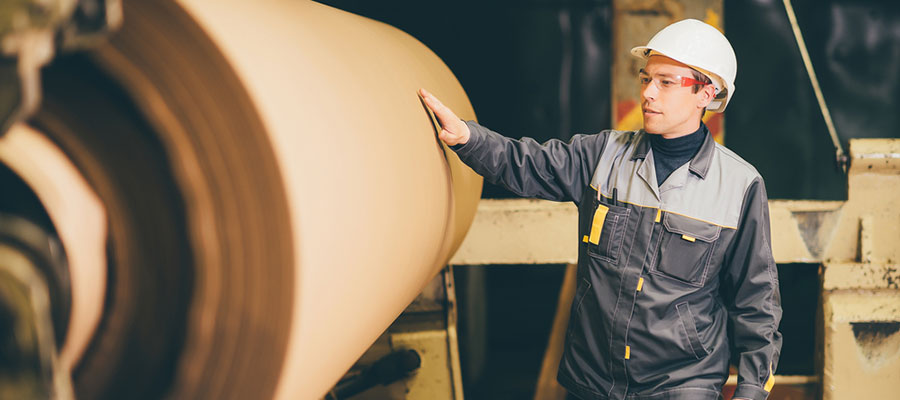Water Conservation for Industrial Use

Industries are the largest water consumers in the country – and, unlike many households, water conservation is rarely considered. Chemical, food, and paper industries are some of the greatest water users. Companies often pay little attention to the amount of water used and wasted during operations. Beyond the sheer volume of water used, water discharge –and resulting pollutants – are also a significant issue.
As the cost of operations rises across many industries, conserving water is an excellent way to save money and resources without compromising quality. In the content below, we discuss the importance of water conservation for industrial use and practical steps organizations can take to initiate optimal water usage.
Why is Water Conservation So Important?
As of 1999, industrial water use accounted for nearly 10% of freshwater withdrawals worldwide. Industries use nearly twice as much water as the average household. Conserving water in industrial use increases water availability, lowers polluted water discharge, and decreases thermal energy expenditure. The potent contamination of discharged wastewater is an ever-pressing problem. According to SSWM, “Most industries generate pollutants as by-products of their producing activities, the major pollutants being nutrients, pathogens, heavy metals, organic and inorganic chemicals, oil sediments, and heat.” Properly disposing wastewater, especially in large quantities, is of utmost importance as well.
Many companies in a plethora of industries assume water conservation hinders profitability. Whether water is a crucial component to the production process or water conservation efforts seem time-consuming, the idea that conservation hinders profitability is far from the truth. Companies often overuse and misuse water, wasting and polluting a valuable resource. In actuality, intentionally conserving water can increase profitability. How?
- Water accounts for nearly 2% of a business’ overhead.
- Water prices are set to increase, above inflation rates. Thus, conserving now may result in reduced future costs.
- As with any resource, conserving today results in additional resources available for future production.
- Government agencies often reward water conservation with tax benefits.
With profit increase in mind, how can companies across a variety of industries emphasize water conservation?
How Can You Conserve Water – Practically?
Manufactures concerned with water conservation often implement waste water treatment and reuse. However, most industries do not realize that further opportunities for practical water savings exist – and are accessible! Choosing the correct spray nozzle, replacing damaged and worn nozzles, and automating cleaning processes are three practical methods to reduce water consumption.
Choose the Correct Spray Nozzle
Manufacturers are often unaware how much water each nozzle uses, multiplied by the hundreds of nozzles in use. Many manufacturing plants utilize hundreds of nozzles daily for a number of various applications, from coating to cleaning. Ultimately, hundreds of thousands of gallons are used every year. This is precisely why choosing an ideal spray nozzle, with correct flow capacity, significantly reduces water usage.
Manufactures tend to choose nozzles with heightened flow rates, assuming that excessive flow is better than too little. Consult with us to discover which nozzles with smaller capacity will adequately work for your application. Even slightly smaller capacity can reduce water usage by millions of gallons.
Replace Damaged and Worn Nozzles
As with all precision equipment, spray nozzles will wear with use. To counterbalance wear and underperformance, nozzles utilize more water than needed and water waste dramatically increases. Every drop matters. Ultimately, millions of gallons are wasted through worn or damaged nozzles. Although water may not seem to be an extremely expensive resource, charges accumulate with volume. Water wasted via underperforming nozzles can increase water costs by over $100,000 every year. Nozzles with greater flow capacity also have greater waste capacity.
Monitor nozzle damage by checking nozzle flow rates, monitoring spray pressure, and visually watching for abnormal spray patterns. When a damaged nozzle is detected, it should be immediately replaced.
Automate Cleaning Processes
Simply put, certain equipment cleaning methods severely increase water waste. Manual tank cleaning and static spray ball cleaning are two such techniques. Compared to manual cleaning, an automated tank cleaning nozzle can reduce water waste by nearly 50%. Time spent cleaning is dramatically reduced, safety hazards – from hazardous fume to chemical burns – are eliminated, and invaluable manpower is reserved for other tasks. Two extraordinary automated tank cleaning nozzles are free-spinning and controlled rotation. Free-spinning nozzles are driven by cleaning fluid which turns the spray head. This effect is best at low pressures in small to medium-sized tanks. Controlled rotation nozzles are driven by cleaning flood as well; however, a turbine wheel with an internal gear controls the nozzle rotation. Controlled rotation nozzles provide higher impact, especially important for larger tanks.
Successfully Implemented Water Conservation Efforts
The previous three steps may seem simple and appealing, but manufacturers may still wonder: do water conservation efforts truly make a difference? The answer is yes. Below, we explore three incredible examples of water conservation in action through a range of efforts.
The San Antonio Frito-Lay Plant
Since 1999, the Frito-Lay Plant in San Antonio has intentionally increased water conservation. Ultimately, Frito-Lay reduced water usage in creating snacks by nearly 50%, saving over one billion gallons of fresh water.
Freescale in Austin
Utilizing Ultra Pure Water, Freescale implemented an intense reuse and recycle program. The program reduced the company’s wastewater production and potable water usage by over 50%, ultimately saving 160 billion gallons of potable water and 90 billion gallons of wastewater.
Lechler: Providing Custom Engineered Spray Solutions
Lechler, world-wide leader in spray technology, is dedicate to efficiency, passionate about water conservation and production productivity. Our team provides custom, state-of-the-art nozzles to a plethora of industries, including food and beverage, chemical, steel, and power generation.
To learn more about the products we offer or pose a question, contact us today at (800) 777-2926 or via our online form!